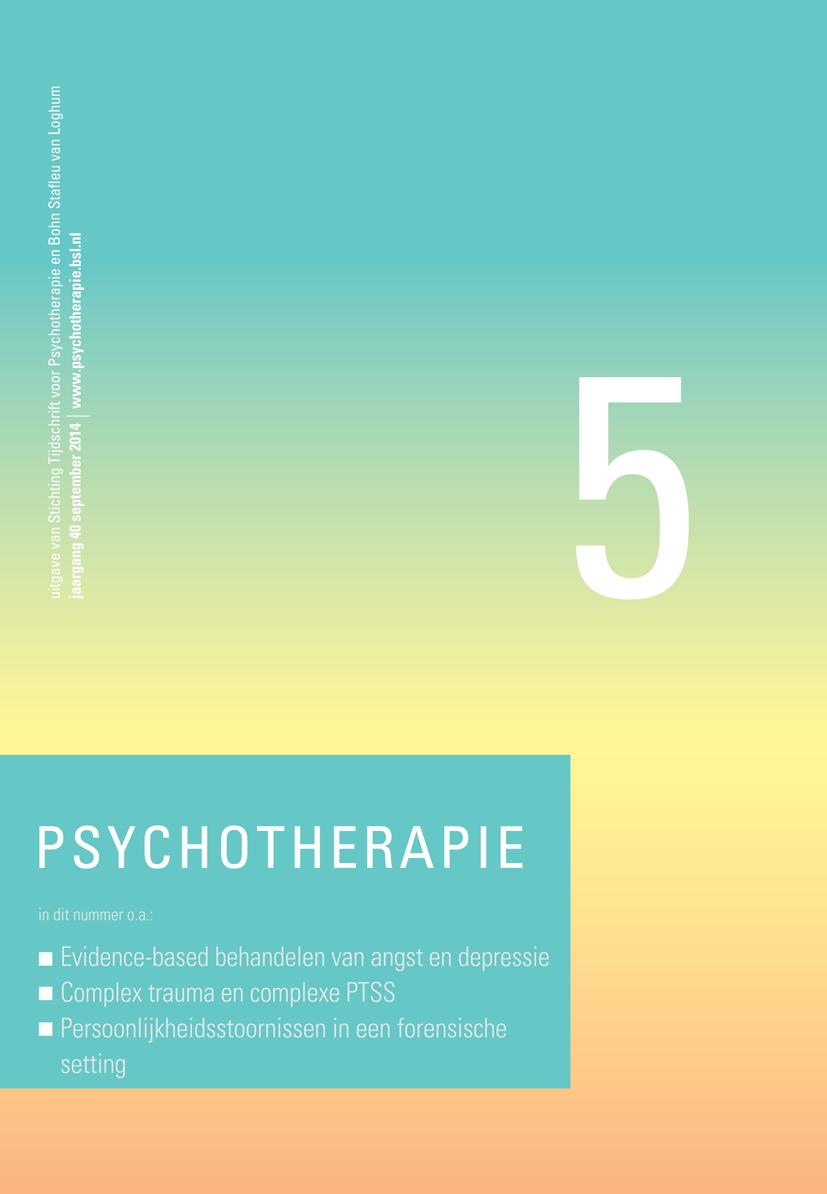Ernst Koster, Kristof Hoorelbeke & Nathan van den Bergh
Evidence-based treatment of anxiety and depression: the importance of therapeutic competence for clinical practice
| • |
Important initiatives exist to improve the dissemination of evidence-based treatments in clinical practice. Yet, therapeutic
competence seems to be a crucial missing link. In this article we discuss the concept of therapeutic competence, as well as
the growing line of outcome research studying the role of therapeutic competence. Therapeutic competence has proven to be
a crucial variable for therapeutic success. Based on these findings, we argue for a stronger focus on training specific interventions
during psychology courses as well as during further education.
|
Jackie June ter Heide, Rolf Kleber & Trudy Mooren
Complex trauma and complex PTSD: what is it and who’s got it?
| • |
While the constructs of complex trauma and complex PTSD make clinical sense, there exists clinical confusion as to their meaning.
An unjustified use of these terms has clinical consequences as treatment guidelines for complex PTSD differ from those for
PTSD. In this article the concepts of complex trauma and complex PTSD are elucidated to contribute to a substantiated use
of these terms. Repeated, prolonged, interpersonal traumatic experiences and disruption of developmental phases are all perceived
as elements of complex trauma. Complex PTSD has not been clearly demarcated in the DSM and cannot be diagnosed without PTSD.
Therefore both complex trauma and complex PTSD should be specified in a descriptive diagnosis. Clinicians should not automatically
assume that patients with complex trauma suffer from complex PTSD: with several patient populations, the prevalence of complex
PTSD has not been studied or a relatively low prevalence has been found.
|
Marit Kool & Helga Aalders
Treating personality disorders in a forensic setting: a crime-scenario-procedure embedded in a schema focused therapy
| • |
A treatment for forensic patients with personality disorders is presented, in which a ‘crime-scenario-procedure’ is embedded
in a schema focused therapy in order to lower the crime risk. In a case study the different schema modes that had occurred
in the build up of the offence have been recognized and alternative ‘healthy’ behaviours were put in a relapse plan. Different
schema therapeutic techniques were used throughout the therapy. The therapy led to an increase of the level of reported mental
health problems and negative emotions. The patient also learned to seek social support when facing problems. There are indications
that the crime risk lowered during the therapy. Apart from the setting and the choice of questionnaires, the most important
limitation of the presented case study is the patient’s anger that couldn’t be adequately treated, leaving the risk of aggressive
acting-out relatively high. In the discussion the authors suggest to use an integrated treatment, such as presented in this
article, when the personality disorder has led to the crime behaviour.
|

